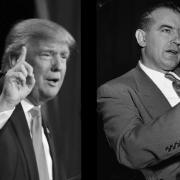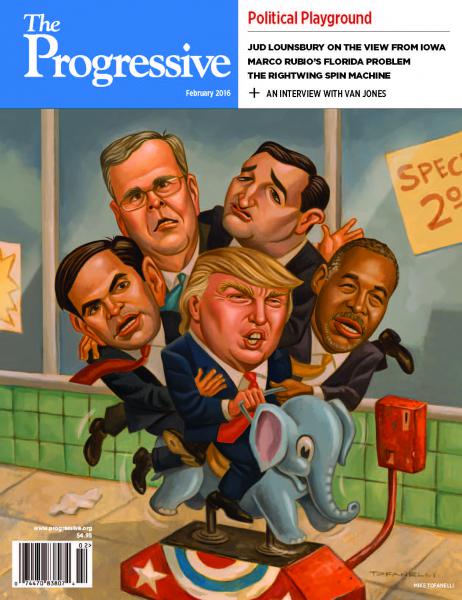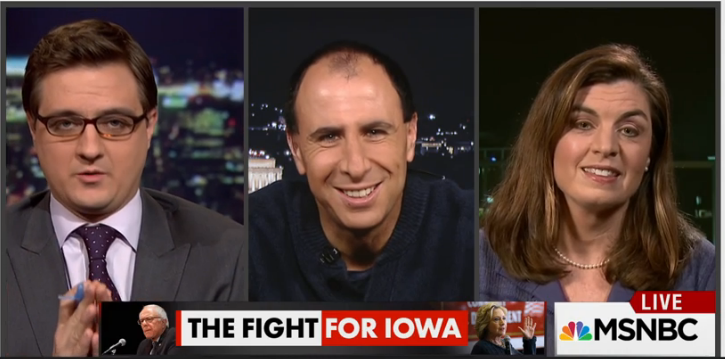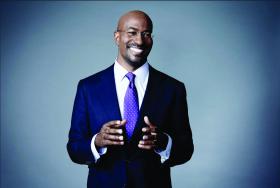It was fascinating to watch Hillary Clinton and Bernie Sanders duke it out in the New...

Albert Goodwin's 1903 painting "Apocalypse."
El Niño has made for a dramatic end to 2015. Warm ocean temps in the equatorial Pacific kicked off extensive droughts in Australia and Brazil, floods in the southern United States, Chile, and Japan, and shorts weather in December for much of the United States east of the Rockies. The global weather pattern is helping push 2015 into first place as the warmest year on record. U.S. citizens will likely experience this chaos by paying more for food, but people in other countries may be challenged finding food at all.
El Niño years, along with La Niña’s that often follow, are typically responsible for a certain amount of climate chaos. But in 2015 and 2016, human-caused climate change lurks behind all the weather drama, intensifying the extremes. People in the U.S. Midwest and the eastern seaboard described this holiday weather as “freakish” and “weird.” Apparently, some people even had trouble shopping!
Snark aside, the chaos is fundamentally disturbing, a reminder of the limits to human control over our environment.
But despite the allure of apocalyptic scenarios, we need to keep generating and working towards a future we believe in. Sure, the weather is getting crazy, but while life could get uncomfortable and even dangerous, most of the burden of climate change will continue to fall on the shoulders of the poor, those most unable to protect themselves. These are also, of course, the same people who have benefitted the least from the comforts of an industrialized lifestyle.
We must think specifically and constructively about what to do, now that the battle is shifting away from the decades-long political deadlock, in part created by well-funded climate change deniers who for years obfuscated the facts and skewed the public discourse. Finally, we are starting to see a good deal of planning and action on climate change.
The challenge now is to participate in the decision-making about how that money is spent. Part of the legacy of the blackballing of climate change discourse means, however, that a lot of change is being driven by private money and economic self-interest.
Some signposts:
-
Big agricultural companies, which source ingredients all over the world, are responding to the increasing uncertainty that droughts, floods, and other manifestations of climate change introduce into food production. Chief executive officers of Coca-Cola, Hain Celestial, Hershey’s, Kellogg’s, Nestle, and Ben & Jerry’s and others co-signed a letter of commitment to reducing their own emissions and to “talk transparently” about how to reach enforceable science-based targets for carbon emissions reductions. They sent the letter in advance of the recent Paris climate talks, appealing to world leaders to “join them” in meeting climate challenges.
-
Divestment from fossil fuel companies, long representing just a tiny percentage of investment dollars, is picking up steam. Jeffrey Ball recently reported in The New Republic on the response of insurance and investment groups to climate change. He described a letter written by a coalition of pension funds, private money managers, university endowments, foundations, and other large investors collectively controlling more than $12 trillion, to the finance ministers of the G-7, calling climate change “one of the biggest systemic risks we face.”
-
Billionaires like Microsoft's Bill Gates, Facebook's Mark Zuckerberg and Amazon's Jeff Bezos have collectively pledged to put their own money toward supporting clean energy R&D private companies. Andrew Revkin recently noted the growing number of discoveries for using waste CO2, and compiled a collection of examples of startup companies trying to figure out ways to make money out of capturing the unwanted gas.
All this is important to celebrate, and long overdue. As this money is moving around though, we also want to be sure our political discourse catches up. The disruption created by climate change creates an opportunity to remake systems that are not only dirty but also abusive to human and animal bodies. Think about industrial agriculture, or car-centered urban planning. They both channel behavior toward more fossil fuel consumption but are constructed around profoundly unjust, unhealthy practices, like our food system’s dependence on illegal, migrant labor.
The collective of activists who helped shut down Keystone XL helped put “climate justice” on the table. They have highlighted the negative impacts of resource extraction as well as increased temperatures on both indigenous communities and conventional agriculture. As big money eyes climate change, we want to be sure that those who have it are hearing progressive ideas for how it can be spent and invested.
Fixing climate change isn’t just a technological challenge. It’s also about society. It’s increasingly hard to think creatively and push for well-considered change when we’re freaked out by Christmastime in shorts. In 2016, let’s push for a broader public conversation not just about climate change but about climate justice, and do what we can to be sure that “clean energy” is really exactly just that.
Mrill Ingram is a geographer and online media editor for The Progressive.
Section:
Topics:
More
- Subscribe
- Featured Video
- Recent Stories
- Recent Comments
- Poetry


Donald Trump, even before the early caucuses, had profoundly disrupted the Republicans. But how, exactly?

Research shows that people with psychiatric disabilities are no more likely than anyone else to commit acts of...
-
.
-
Whoa, this article is waaaay
-
A massive write-in campaign
By Wendell Berry
Manifesto: The Mad Farmer Liberation Front
Love the quick profit, the annual raise, vacation with pay. Want more of everything ready made. Be afraid to know your neighbors and to die. And you will have a window in your head. Not even your future will be a mystery any more. Your mind will be punched in a card and shut away in a little drawer. When they want you to buy something they will call you. When they want you to die for profit they will let you know. So, friends, every day do something that won’t compute. Love the Lord. Love the world. Work for nothing. Take all that you have and be poor. Love someone who does not deserve it. Denounce the government and embrace the flag. Hope to live in that free republic for which it stands. Give your approval to all you cannot understand. Praise ignorance, for what man has not encountered he has not destroyed. Ask the questions that have no answers. Invest in the millennium. Plant sequoias. Say that your main crop is the forest that you did not plant, that you will not live to harvest. Say that the leaves are harvested when they have rotted into the mold. Call that profit. Prophesy such returns. Put your faith in the two inches of humus that will build under the trees every thousand years. Listen to carrion—put your ear close, and hear the faint chattering of the songs that are to come. Expect the end of the world. Laugh. Laughter is immeasurable. Be joyful though you have considered all the facts. So long as women do not go cheap for power, please women more than men. Ask yourself: Will this satisfy a woman satisfied to bear a child? Will this disturb the sleep of a woman near to giving birth? Go with your love to the fields. Lie easy in the shade. Rest your head in her lap. Swear allegiance to what is nighest your thoughts. As soon as the generals and the politicos can predict the motions of your mind, lose it. Leave it as a sign to mark the false trail, the way you didn’t go. Be like the fox who makes more tracks than necessary, some in the wrong direction. Practice resurrection.
Wendell Berry is a poet, farmer, and environmentalist in Kentucky. This poem, first published in 1973, is reprinted by permission of the author and appears in his “New Collected Poems” (Counterpoint).









